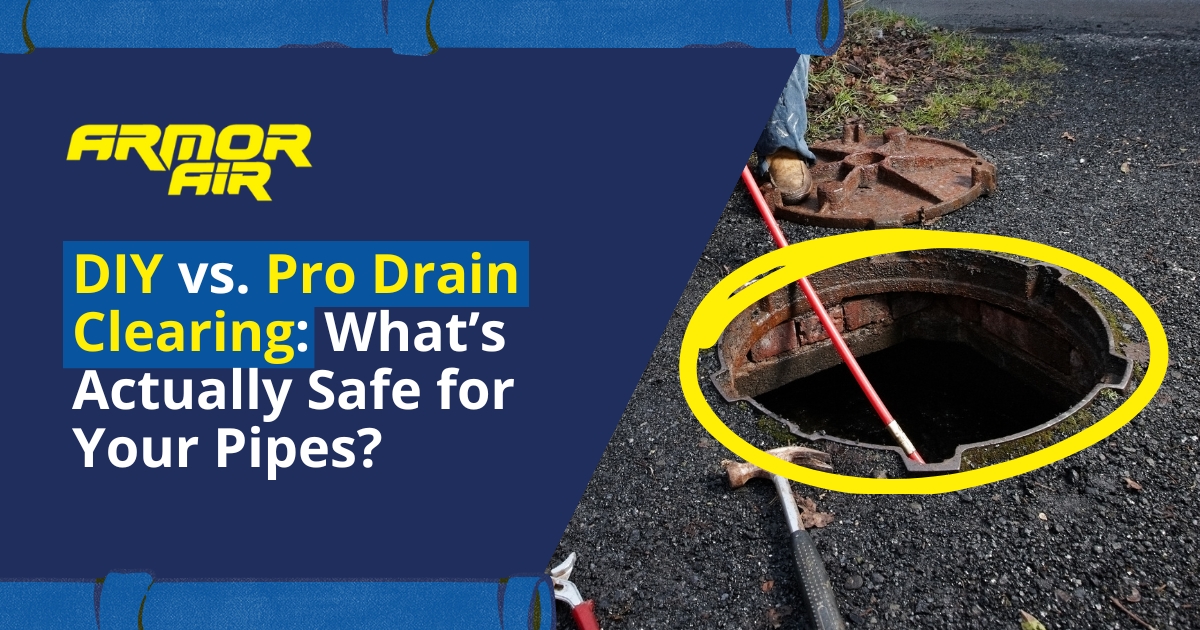Closed: Sun for God + Family time
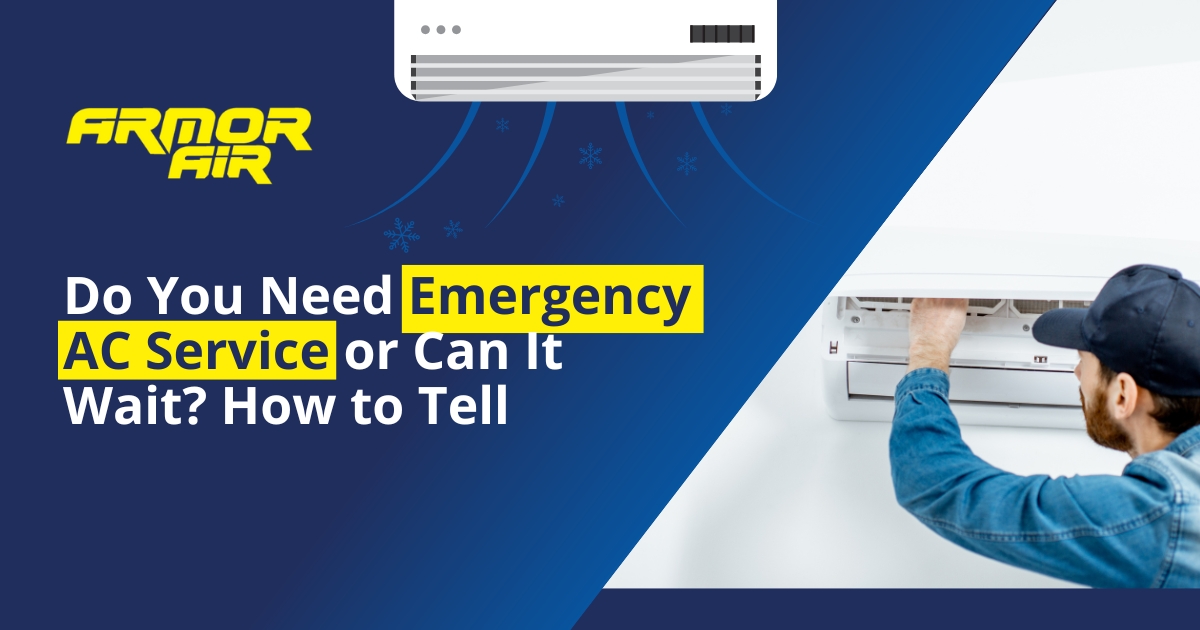
Do You Need Emergency AC Service or Can It Wait? How To Tell
Air conditioning issues have a frustrating way of showing up at the worst possible times — like during the middle of an Indianapolis summer heatwave or right before a holiday weekend. When your AC starts acting up, it’s easy to panic and assume the worst. However, not every cooling problem needs immediate attention.
How do you know if you need emergency AC service or if you can safely wait for a regular appointment? Recognizing the difference lets you make smart, timely decisions for your comfort and safety.

What Counts as an AC Emergency?
AC emergency repair is intended for situations that pose an immediate risk to your health, safety, or property. It isn’t just about comfort — it’s also about preventing potential hazards and avoiding costly damage.
Learning when to call for emergency AC service is key. Here are a few scenarios that typically qualify as AC emergencies:
- Complete AC failure during extreme heat, especially if your household has vulnerable individuals like infants, the elderly, or those with health issues.
- Electrical issues such as burning smells or tripped breakers.
- Refrigerant leaks can be hazardous and affect system performance.
- Frozen coils or ice buildup indicate a serious internal malfunction.
- Water leaks from the unit, which can potentially cause structural or electrical damage.
Top Signs You Shouldn’t Wait for Repairs
While not every issue is an emergency, the following signs of AC failure shouldn’t wait for repairs:
- AC not cooling properly: Warm air is blowing from the vents despite the thermostat being set to “cool.”
- Strange noises: Loud banging, screeching, or grinding noises suggesting a mechanical problem.
- Unusual odors: A mildew odor is a sign of mold, and a burnt plastic scent could indicate wiring issues.
- Frequent system cycling: The system turning on and off repeatedly can lead to compressor failure.
- AC leaking water: Leaks could be due to compressor or blower failure.
- Poor airflow: Weak airflow can indicate a clogged filter or ductwork issue, which may worsen if left unaddressed.
When you notice these signs, contact an air conditioning technician as soon as possible, even if you’re not quite in “emergency” territory yet. Acting quickly can help you avoid a full system breakdown.
When It’s Okay To Wait for a Regular Appointment
Not every AC problem is urgent. Some issues can be safely scheduled during regular service hours, such as:
- Mild temperature fluctuations, such as your air conditioner blowing warm air.
- Strange but faint noises that don’t persist.
- Short cycling that happens once or twice, but not repeatedly.
- Dusty smells when first turning on the AC (common after long periods of disuse).
- Thermostat calibration issues, especially if your system is still cooling.
When It’s Usually Safe to Run Your AC
You can typically continue using your AC temporarily if:
- The issue is minor, such as a clogged filter or slightly reduced airflow.
- The unit is still cooling adequately, without odd smells or noises.
- There are no signs of leaks, electrical issues, or freezing.

Risks of Ignoring AC Warning Signs
Even minor AC problems can spiral into a need for urgent HVAC repairs if left unaddressed. For instance, a clogged air filter can reduce airflow, causing the evaporator coils to freeze and eventually leading to compressor damage. Similarly, strange noises may point to loose or failing components that can damage other parts of the system if not repaired.
Ignoring warning signs can lead to:
- Higher energy bills.
- Reduced indoor air quality.
- Complete system failure.
- Costly replacements instead of simple repairs.
Taking action early — even if it’s not an emergency — can save you from future headaches.
How To Stay Cool While You Wait for Service
If you need to wait for an appointment, here are a few ways to stay comfortable and protect your home’s indoor climate:
- Close blinds and curtains during the day to reduce heat gain.
- Use ceiling and portable fans to circulate air.
- Avoid using the oven or stove.
- Stay hydrated, especially if indoor temperatures rise.
- Sleep on lower floors, where it tends to be cooler.
- Cool a single room using a window unit or a portable air conditioner, if available.
These measures can buy you time and maintain safe indoor conditions while you wait for professional help.
Why Quick Action Matters in Extreme Heat
High outdoor temperatures can turn an AC failure into a health emergency. Prolonged exposure to indoor heat without ventilation can lead to:
- Heat exhaustion or heatstroke
- Dehydration
- Worsening of existing health conditions
- Unlivable indoor environments
In the Indianapolis region, where summer heat can sometimes exceed 90°F, a quick response is critical. Don’t hesitate to call for emergency AC service when indoor conditions start to feel unsafe.
Armor Air’s Trusted Emergency HVAC Services
At Armor Air, we understand that AC emergencies don’t follow a 9-to-5 schedule. That’s why we offer 24/7 emergency HVAC services in your area, including holiday and weekend AC repair. Whether your AC breaks down during a heatwave or your system starts leaking refrigerant unexpectedly, our licensed technicians respond quickly to get your system back up and running.
With transparent pricing, years of experience, and a reputation for reliability, Armor Air is your go-to team for fast, effective emergency repairs. We also offer preventative maintenance plans to catch issues before they escalate.

Contact Armor Air Today
Rather than searching “HVAC technician near me” during an urgent breakdown or a minor annoyance, Armor Air is ready to help restore your comfort and peace of mind. Contact us today to schedule emergency AC servicing or a regular tune-up and beat the heat this summer!
Recent News
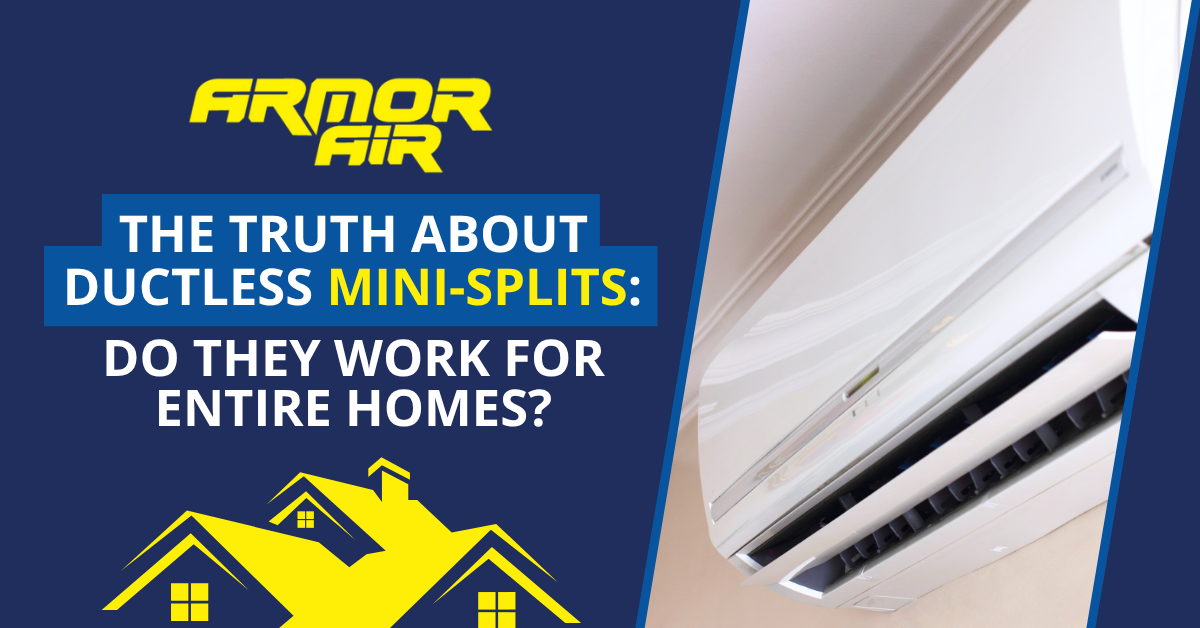
The Truth About Ductless Mini-Splits: Do They Work for Entire Homes?
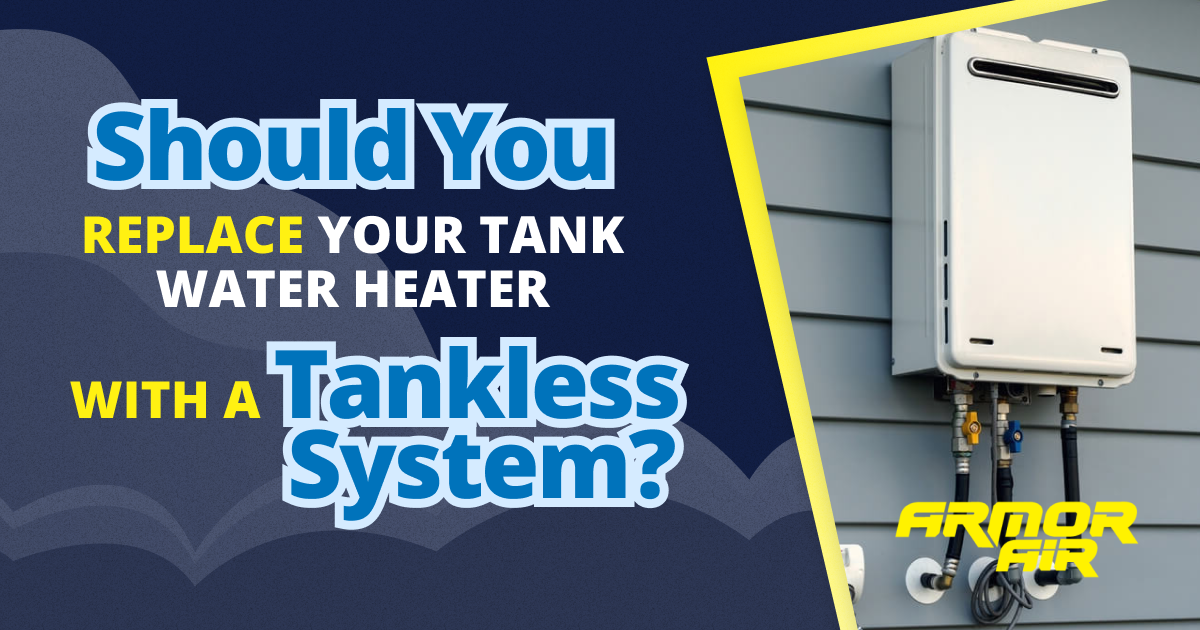
Should You Replace Your Tank Water Heater with a Tankless System?

Top Benefits of Installing a Water Softener in Your Home

How a Smart Thermostat Can Save You Money This Summer

How to Beat the Humidity: Dehumidifier Benefits in Indiana Homes
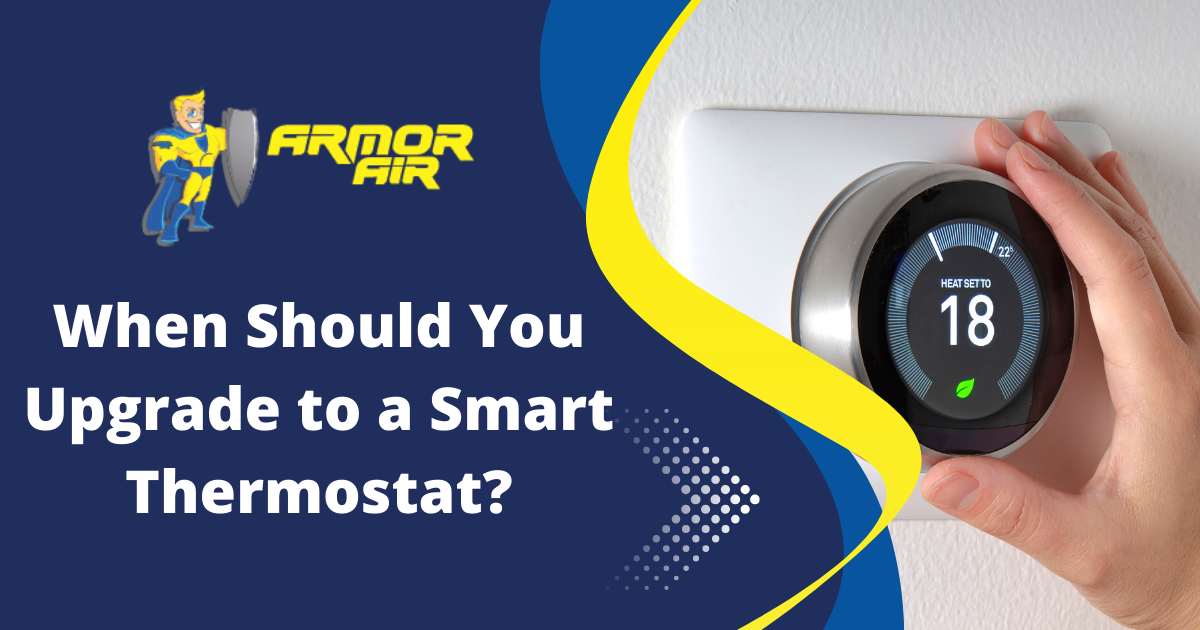
When Should You Upgrade To a Smart Thermostat?
